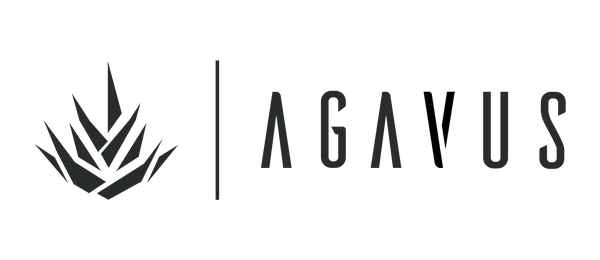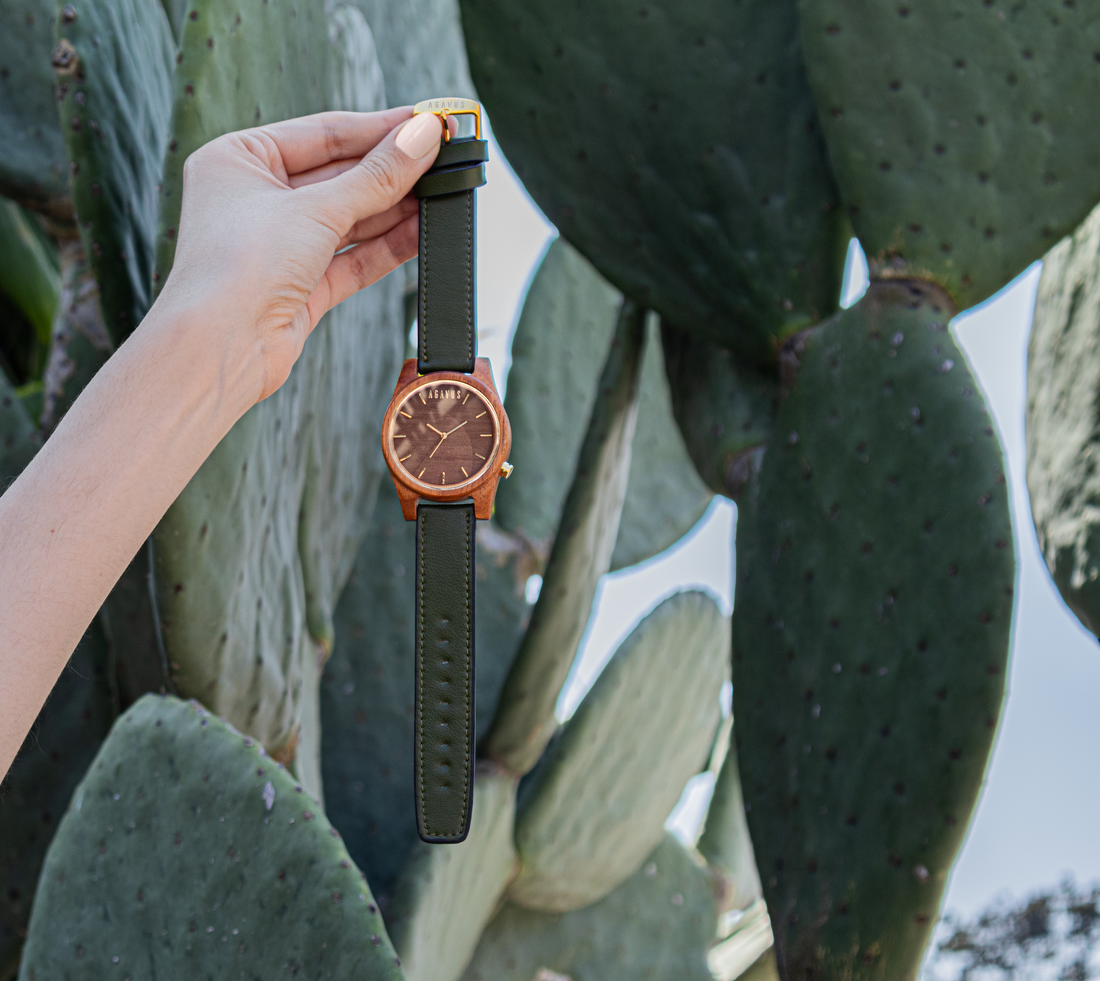At Agavus, we choose to use cactus skin as a fundamental part of our personalized wooden watches for one fundamental reason: sustainability. This decision aligns with our values of respect for the environment and Mexican culture. Not only is cactus skin an animal-friendly alternative, it also minimizes our impact on nature.
Our commitment to preserving the environment is reflected in every piece we create. Every time you choose an Agavus watch with cactus skin, you are contributing to the reduction in demand for traditional leather, which is often associated with polluting processes and animal abuse. Additionally, cactus skin is a renewable resource, meaning we don't deplete our natural resources in the process.
The choice of nopal skin is a testament to our passion for Mexico and its natural wealth. It is a way to connect our clients with the beauty and sustainability that this country offers. By using cactus leather in our watches, we create not only pieces of quality and style, but also a positive impact on the world around us.
The world's first highly sustainable and environmentally friendly organic material made from cactus.
The vegetable leather produced from the nopal has caused a great impact on the fashion industry in Latin America. The material, which is a sustainable alternative to animal and synthetic leather, is being adopted by designers and brands looking for a more environmentally friendly option.
The leading brand in the production of vegetable leather in the region. Desserto, a proud Mexican company, has managed to produce it in an innovative and sustainable way, using the cactus as raw material and avoiding a negative impact on the environment at each stage of the process.
The production of leather of animal origin is highly polluting and its use has been associated with animal abuse and the use of harmful chemicals. That is why vegetable leather, especially bio-based and regenerative materials, are being considered the best sustainable alternative of 2023. Emphasizing our ethical commitment and concern for the environment. Desserto has become our supplier, we convert their materials into beautiful handmade pieces such as straps and accessories.
Water: With great care, only the mature leaves of the cactus are selected and cut, preserving the plant so that it can give a new harvest every 6-8 months. Furthermore, nature is wise and provides the cactus with everything it needs to grow in its environment, without the need for an artificial irrigation system. Rainwater and minerals from the region's rich soil feed the cactus, allowing it to survive even in the low temperatures of winter.
Co2: The cactus absorbs CO2 at night because only when the environment is cool does the plant open its stomata, capturing CO2, generating oxygen and absorbing water present in the atmosphere that normally comes from morning dew. The cactus (CAM) only needs 200 liters, however, these 200 liters are absorbed by the plant itself through its natural hygroscopic mechanism. The cactus is a natural carbon sink, it has a great capacity to capture CO2. In Desserto they have 588 hectares, which are capable of absorbing 8,100 tons of CO2 per year, while the farm only generates 15.30 tons of CO2 annually.
Footprint: In Desserto no trees have been cut down, on the contrary, as they have planted a cactus native to the region, the plantations coincide with the biodiversity and mix with the wild flora. No additional energy is used in the drying process as it is dried in the sun. No herbicides or pesticides are used. All remaining organic cactus material that is not used in their process is exported and sold domestically in the food industry.
Animal Leather: It is argued that leather is a by-product of the meat industry, and from an environmental point of view (without considering the vegan perspective), this statement is true. It is said that the leather would end up in the trash anyway. However, it must be taken into account that the meat industry causes enormous environmental damage worldwide. It is estimated that 2,000 animals die every second in the world. Approximately 345 million a day, to which we must add about 90 million tons of fish that are taken each year to feed the animals.
Tanning of animal leather: Although obtaining leather from meat industry waste is justified, leather production releases large quantities of toxic chemicals and acidic effluents containing heavy metals such as chromium, cadmium, lead, arsenic, cobalt , copper, iron, zinc and manganese.
FDA Certification: The United States Department of Agriculture (USDA) is responsible for programs and services related to rural development, animals, food, nutrition, natural resources, environment and forests. The nopal skin created by Desserto is certified by its acronym in English as "Certified Biobased Product" which means that it is given a certification as a product that a percentage of 65% comes from a renewable source, such as plants, animals , marine products or the forestry industry. The use of renewable biological materials replaces the need for non-renewable petroleum-based chemicals.

